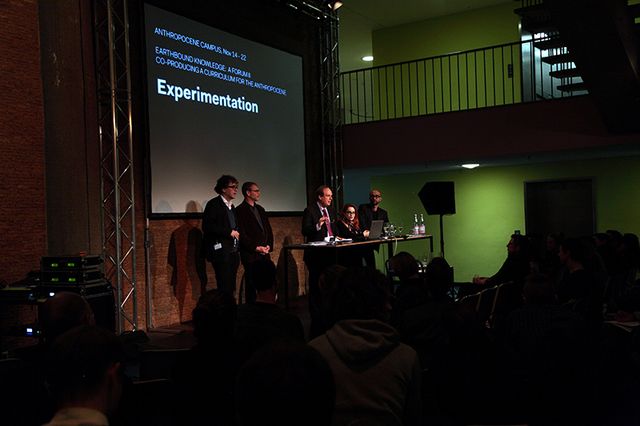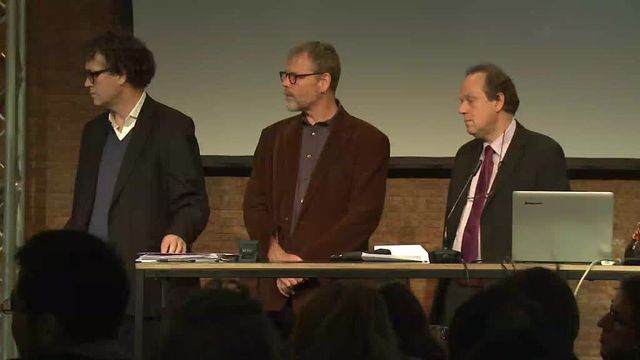Experimentation

Statements by Maya Kovskaya (theorist, art critic, and curator, Delhi/Beijing), Erle Ellis (Geography and Environmental Systems, University of Maryland, Baltimore), Nabil Ahmed (Centre for Research Architecture, Goldsmiths, University of London). Discussion moderated by Jürgen Renn (Max Planck Institute for the History of Science) and Bernd Scherer (director, Haus der Kulturen der Welt).
To what degree does experimentation play a role in the shifting of perspectives and the creation of solutions necessary for the Anthropocene? Experimental methods – whether scientific, artistic, or otherwise – are not a virtue in themselves, yet they can aid in the way we deal with the dynamics of the age: they combine different scales of effect, and they multiply sources of resilience. The Anthropocene confronts us with an array of known-unknowns as well as unknown-unknowns. Our learning is a process of entering whilst simultaneously doing and generating the new epoch. In order to support the adaptation of societies to such a future-now, one certainly needs to designate clear and defined spaces for free interaction and wild modeling. This enabling of experimentation creates room for maneuvers that respond appropriately to the changing crises, showing alternative pathways and possible futures.
Maybe experimentation is simply the new reality check, now that the unexpected seems to have become the new norm? If experimentation is on its way as a standard for generating knowledge forms, then what will future experimentation look like? How to resist stasis, how to keep knowledge fresh and responsive, how to control the systemic tendency towards an eventual “orthodoxy”? In our time of rapid transformation, we cannot afford to rest upon our laurels. How, then, can we nourish creativity, play, and spontaneity when faced with such a test of endurance?

